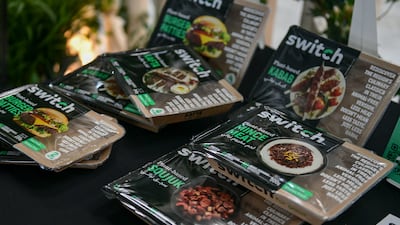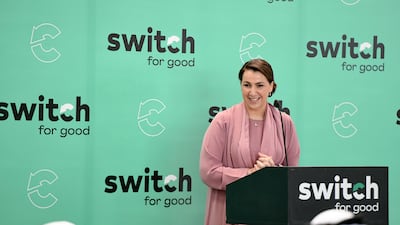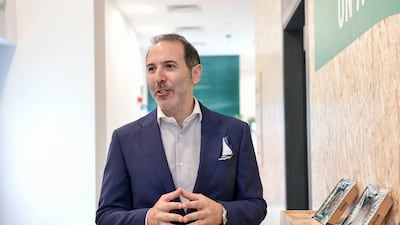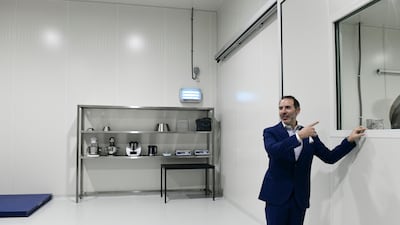A new plant-based meat production centre has been inaugurated in Abu Dhabi, and its products are set to arrive at UAE supermarkets in May.
The newly-built Switch Foods factory occupies 2,000 square metres at the Khalifa Industrial Zone in the capital, and can produce 1,000kg of plant-based meat per hour, or 8,000kg a day.
Aside from the high-tech production floor, the factory also has a science lab, an innovation lab and storage units for raw materials and final products.
The products, which will be available in supermarkets across the country next month, include kebab, soujuk, kofta, burger patties and minced meat. All of them are 100 per cent plant-based, mainly from peas.
The inauguration comes as meat alternatives win renewed popularity, with people becoming more health conscious.
Several international brands already have a presence in the UAE, such as the popular Beyond Meat, but Switch Foods prides itself on being home-grown.
According to Edward Hamod, the company's chief executive, having a local production line will address concerns about such products' typically high price points. Without revealing the pricing, he said their products are going to be “by far the cheapest”.
Aside from cost, faux meat has also struggled to completely win over the mainstream food scene amid concerns about texture and flavour. Some people have described it as feeling dry in the mouth and having an earthy aftertaste.
Hamod says Switch Foods worked initially with chefs from North America in the development phase but eventually enlisted regional chefs to capture the local flavour.
Scroll through the gallery below for more pictures of the Switch Foods factory in Abu Dhabi
“We worked on different projects with different chefs and restaurants,” he adds, saying they are launching further collaborations soon. In addition to its retail operations, the company also plans to sell meat products to such venues.
Earlier this year, Dubai saw the opening its first plant-based meat factory. Food producer Iffco opened Thryve at Dubai Industrial City in March.
The rise of flexitarians
Plant-based meat producers, even well-known restaurants such as Neat Burger, have a tempered approach when it comes to promoting their products. They don't expect to fully convert meat eaters, but they are big advocates of flexitarianism and a semi-vegetarian lifestyle.
“We want meat eaters to eat a bit less meat. We want them to switch a meal a week, or two per month, to plant-based,” says Hamod. He adds that flexitarians are an even bigger market for them than vegans.
“We live in the largest meat-consuming region in the world. We consume, on average, about 55kg of meat per capita,” he says, noting that the Food and Agriculture Organisation's recommendation is only 22kg.
Hamod argues that even the slightest change in meat consumption habits could have a huge difference, and it helps that there is already a “global movement” in this regard.
A YouGov study in 2021 showed that flexitarians form 13 per cent of the UK’s population and 12 per cent in the US. These numbers are projected to grow, aided by greater health and environmental awareness, as well as further product innovation in the plant-based meat industry.
In the region, Hamod thinks the plant-based meat market is “suffering because it's dependent on imports that don't meet the its taste requirements”.
He said Switch Foods has worked 12 to 16 months to perfect its current product line and make it as tasty for the UAE palate as possible. It plans to add more products soon.
Restaurants have been expressing interest in collaborating with Switch Foods and developing recipes using their meat alternatives, Hamod says.
“Us being local, having the ability to work with chefs and designing specific products for them is monumental,” he said. He points out that local production capacity circumvents supply chain disruptions, allowing restaurants to fully commit to incorporating meat alternatives in their menus.
“We are half an hour away from everybody in the UAE, and we produce a ton per hour, which is more than any restaurant can take,” he says.






